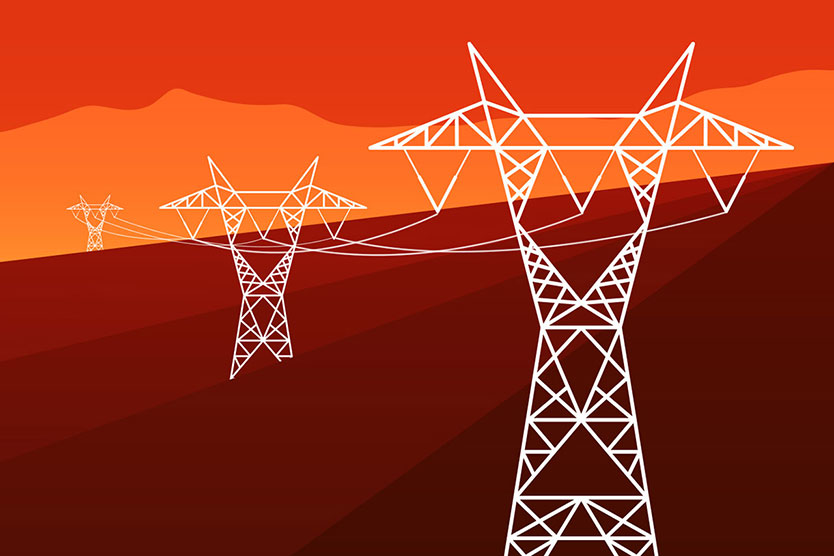
The right balance of active and reactive power is essential for decentralised networks powered by renewables.
© BMWi
Keeping the power grid stable is a big balancing act between active power – the power that turns kettles on and illuminates lightbulbs at the touch of a switch – and reactive power, the force that helps push active power around the network. Getting the balance of reactive power right is essential for stabilising the electricity supply – and this is a critical issue for decentralised networks powered by renewables.
"As long as conventional power plants carry a large share of electricity generation, the supply of reactive power in the distribution grid is more or less a self-selling item," explains Professor Martin Braun, head of the Grid Planning and Grid Operation division at the Fraunhofer Institute for Energy Economics and Energy System Technology (IEE) in a press release. “However, in an increasingly decentralised generation landscape, this task is becoming far more complex. With our research project RPC2, we are demonstrating how distribution grids can be supported with innovative decentralised and centralised methods for managing reactive power."
In the first phase of Reactive Power Control 2 (RPC2), the researchers developed new procedures for requesting reactive power from decentralised power sources, compensation plants and transformers staging in the high and medium voltage grid. They then implemented them using the IEE's "beeDIP" platform, which integrates new algorithms and test operations with plant control rooms.
After successfully completing the lab tests and simulations, the team demonstrated the reactive power computers in action in the distribution grids of their project partners AllgäuNetz and LEW Verteilnetz. The results showed the new protocols can deliver the required reactive power values with pinpoint accuracy.
RPC2 was funded by the German Federal Ministry of Economics and Climate Action as part of the Future-proof Electricity Grids funding initiative.


